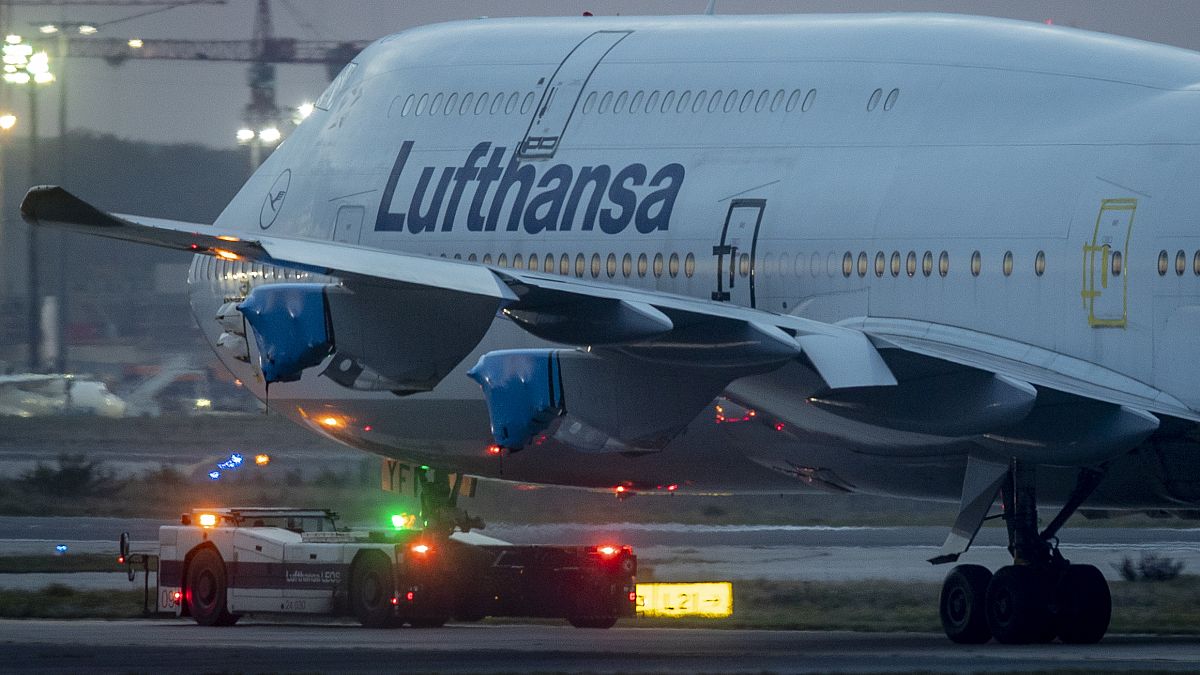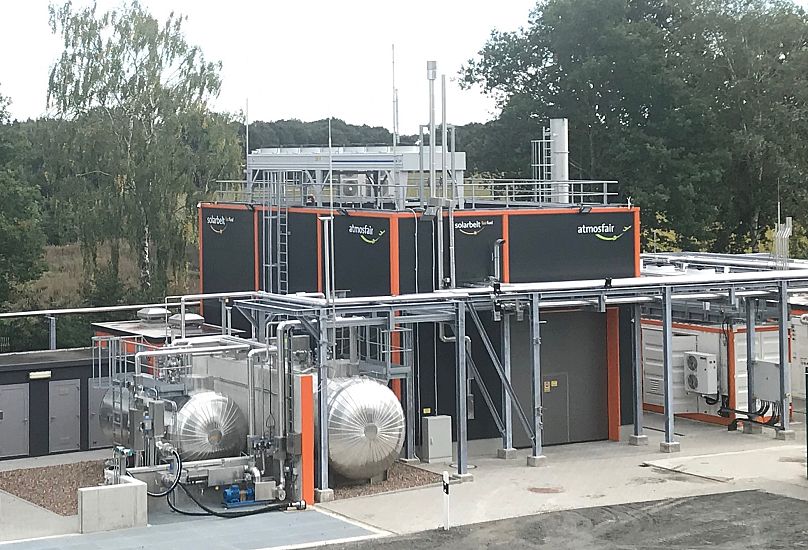The 'climate-friendly' jet fuel is much more expensive than kerosene.
German officials on Monday unveiled what they said is the world’s first commercial plant for making synthetic kerosene, touted as a climate-friendly fuel of the future.
Aviation currently accounts for about 2.5% of worldwide emissions of carbon dioxide, a greenhouse gas that contributes to global warming.
While other forms of transportation are increasingly being electrified, the challenge to making large, battery-powered planes is formidable.
Experts say so-called e-fuels can help solve the problem, by replacing fossil fuels without major technical modifications to the aircraft.
“The era of burning coal, oil and natural gas is drawing to a close,” Germany’s environment minister, Svenja Schulze, said at a ribbon-cutting ceremony for the new plant. “At the same time, no one should have to sacrifice the dream of flying. This is why we need alternatives to conventional, climate-harming kerosene.”
'Carbon neutral fuel'
The facility in Werlte, near Germany’s northwestern border with the Netherlands, will use water and electricity from four nearby wind farms to produce hydrogen. In a century-old process, the hydrogen is combined with carbon dioxide to make crude oil, which can then be refined into jet fuel.
Burning that synthetic kerosene releases only as much CO2 into the atmosphere as was previously removed to produce the fuel, making it “carbon neutral.”
The amount of fuel the plant can produce from early next year is modest: just eight barrels a day, or about 336 gallons of jet fuel. That would be enough to fill up one small passenger plane every three weeks.
By comparison, total fuel consumption of commercial airlines worldwide reached 95 billion gallons in 2019, before the pandemic hit the travel industry, according to the International Air Transport Association.
But Atmosfair, a German non-profit group behind the project, says its purpose is to show that the process is technologically feasible and — once it is scaled up and with sufficient demand — economically viable.
“It’s a new paradigm, if you will,” said Falko Ueckerdt, a senior researcher and team leader at the Potsdam Institute of Climate Impact Research who is not involved with the project. “Through cheap solar, mainly, it can be possible in the future to produce e-fuels that are as cheap as fossil fuels today.”
Much more expensive than regular fuel
Initially, the price of synthetic kerosene produced in Werlte will be far higher than that of regular jet fuel, though Atmosfair won’t divulge how much it will be charging its first customer, German carrier Lufthansa.
However, Atmosfair’s chief executive, Dietrich Brockhagen, says a price of €5 per litre (0.26 gallons) is possible. That’s still several times what kerosene currently costs, but Atsmofair is banking on carbon taxes driving up the price of fossil fuels, making his product more competitive.
Additionally, authorities at the national and European level are putting in place quotas for the amount of e-fuel airlines will have to use in future. That will create demand, making it more attractive to invest in bigger and better plants.
Ueckerdt said €5 per litre is feasible by 2030, when the European Union’s executive may require airlines to meet 0.7% of their kerosene needs with e-fuels. Under current plans, that would rise 28% by 2050.
“These are huge markets,” said Ueckerdt.
Lufthansa has committed to buy 25,000 litres of the e-kerosene annually over the next five years. Its Cargo operation and Kuehne + Nagel will be the beneficiaries.
"Lufthansa's airlines have been researching and using sustainable aviation fuels (SAF) for many years. We are currently the largest customer in Europe. Synthetic fuels from renewable energies are the kerosene of the future," Christina Foester, a member of Lufthansa's executive board, said in a statement.
The Transport & Environment NGO said the opening of the plant "is definitely a step in the right direction", adding that "e-kerosene can immediately reduce aviation's climate impact without any changes to the way aircraft operate."
But its aviation policy officer, Matteo Mirolo, also stressed that "the challenge is to scale up production from litres to millions of litres."
"For this to happen, the EU should mandate a bigger share of e-kerosene in jet fuel and to start doing so from 2027. Only this will give the needed certainty to investors and producers to scale-up production," he said.
'Opportunities for German technology'
Ueckerdt cautioned, however, that e-fuels are no short-term solution to the need to rapidly cut global emissions if the Paris climate accord’s goal is to be met.
Ensuring that the carbon used to produce e-fuels is extracted straight from the atmosphere, rather than as a by-product of fossil fuel burning, is also important, said Ueckerdt
To start, the plant in Werlte will use fuel made with a mix of carbon dioxide from a nearby biogas facility and that captured directly from the air.
Schulze, the environment minister, acknowledged that Germany may not be the ideal place to produce large amounts of e-fuel. But even if other countries have cheaper solar power thanks to a greater abundance of sunshine, “this will create export opportunities for German technology and plant construction,” she said.

